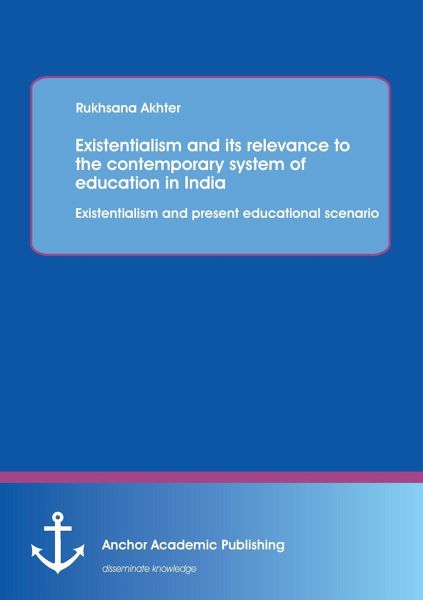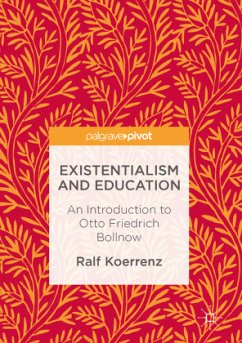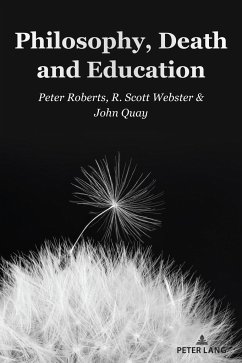
Existentialism and its relevance to the contemporary system of education in India: Existentialism and present educational scenario

PAYBACK Punkte
0 °P sammeln!
Existentialism represents a protest against the rationalism of traditional philosophy, against misleading notions of the bourgeois culture, and the dehumanizing values of industrial civilization. Since alienation, loneliness and self-estrangement constitute threats to human personality in the modern world, existential thought has viewed as its cardinal concerns a quest for subjective truth, a reaction against the negation of Being and a perennial search for freedom. From the ancient Greek philosopher, Socrates, to the twentieth century French philosopher, Jean Paul Sartre, and other thinkers h...
Existentialism represents a protest against the rationalism of traditional philosophy, against misleading notions of the bourgeois culture, and the dehumanizing values of industrial civilization. Since alienation, loneliness and self-estrangement constitute threats to human personality in the modern world, existential thought has viewed as its cardinal concerns a quest for subjective truth, a reaction against the negation of Being and a perennial search for freedom. From the ancient Greek philosopher, Socrates, to the twentieth century French philosopher, Jean Paul Sartre, and other thinkers have dealt with this tragic sense of ontological reality - the human situation within a comic context
The book put forward is the beginning of an attempt to revive existentialism by addressing these issues. The idea is eventually to present a conception of personhood that is recognizably existentialist, or similar to that presented by writers like Kierkegaard, Heidegger, Jaspers, and Sartre in certain fundamental ways, but that takes into account the last twenty years of developments in the many different areas of philosophy that directly affect our understanding of what it is to be a person. The result will hopefully be a more sophisticated existentialist theory of personhood that can be presented in contemporary terms as a serious challenge to current dogmas in metaphysics and moral theory, and be defended against the ascendant naturalistic, rationalistic, or pragmatist alternatives.
The book put forward is the beginning of an attempt to revive existentialism by addressing these issues. The idea is eventually to present a conception of personhood that is recognizably existentialist, or similar to that presented by writers like Kierkegaard, Heidegger, Jaspers, and Sartre in certain fundamental ways, but that takes into account the last twenty years of developments in the many different areas of philosophy that directly affect our understanding of what it is to be a person. The result will hopefully be a more sophisticated existentialist theory of personhood that can be presented in contemporary terms as a serious challenge to current dogmas in metaphysics and moral theory, and be defended against the ascendant naturalistic, rationalistic, or pragmatist alternatives.














